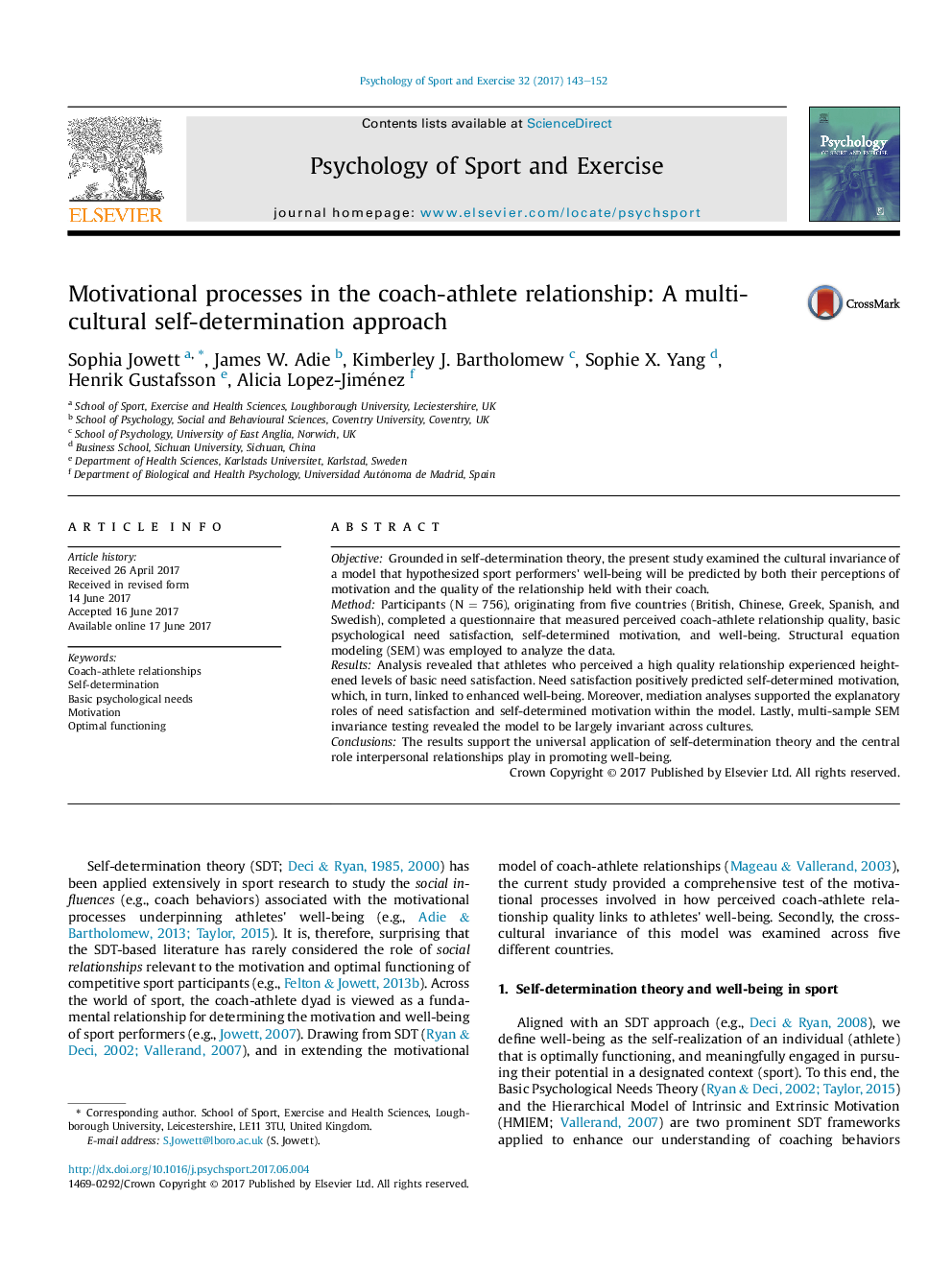| Article ID | Journal | Published Year | Pages | File Type |
|---|---|---|---|---|
| 5036475 | Psychology of Sport and Exercise | 2017 | 10 Pages |
â¢Coach-athlete relationships hold motivational properties regardless of culture.â¢Relationships are situations within which psychological needs are satisfied, and self-determination and athlete potential are realised.â¢The motivational processes as outlined by SDT can be universally applied and understood.
ObjectiveGrounded in self-determination theory, the present study examined the cultural invariance of a model that hypothesized sport performers' well-being will be predicted by both their perceptions of motivation and the quality of the relationship held with their coach.MethodParticipants (NÂ =Â 756), originating from five countries (British, Chinese, Greek, Spanish, and Swedish), completed a questionnaire that measured perceived coach-athlete relationship quality, basic psychological need satisfaction, self-determined motivation, and well-being. Structural equation modeling (SEM) was employed to analyze the data.ResultsAnalysis revealed that athletes who perceived a high quality relationship experienced heightened levels of basic need satisfaction. Need satisfaction positively predicted self-determined motivation, which, in turn, linked to enhanced well-being. Moreover, mediation analyses supported the explanatory roles of need satisfaction and self-determined motivation within the model. Lastly, multi-sample SEM invariance testing revealed the model to be largely invariant across cultures.ConclusionsThe results support the universal application of self-determination theory and the central role interpersonal relationships play in promoting well-being.
